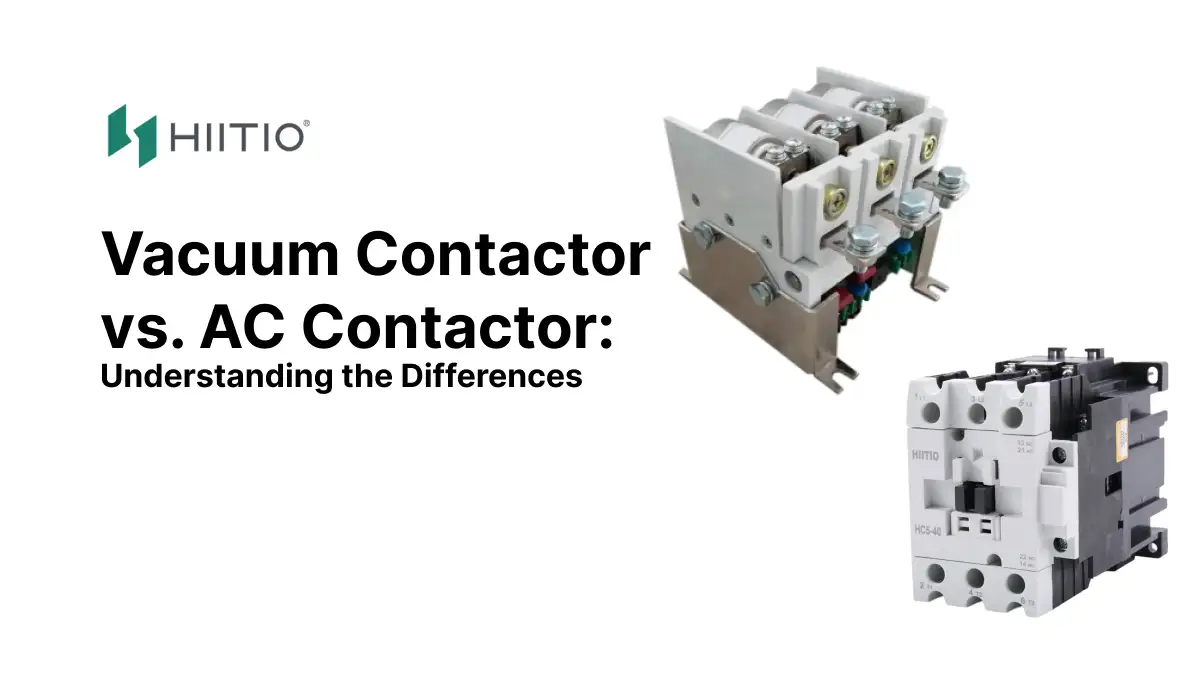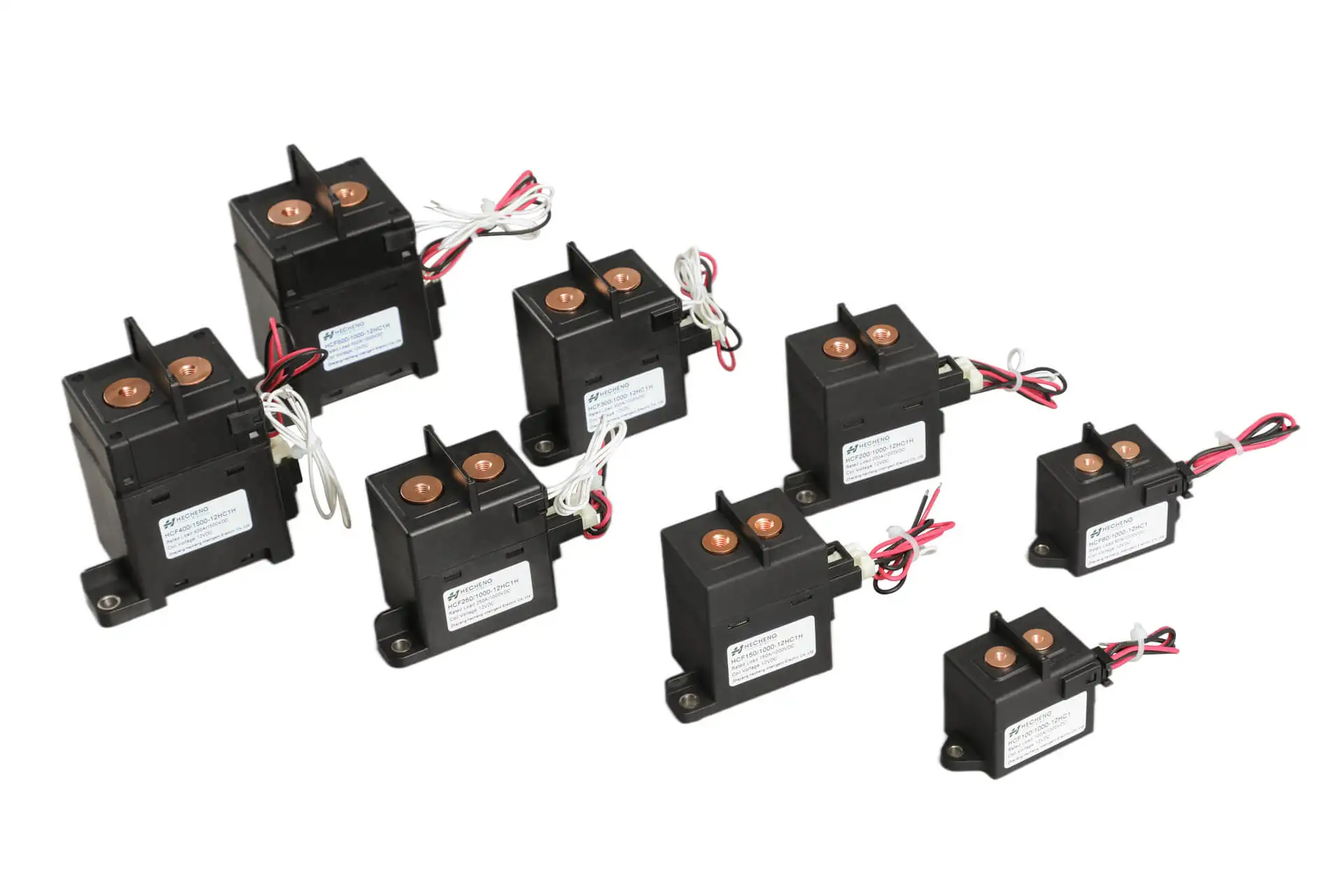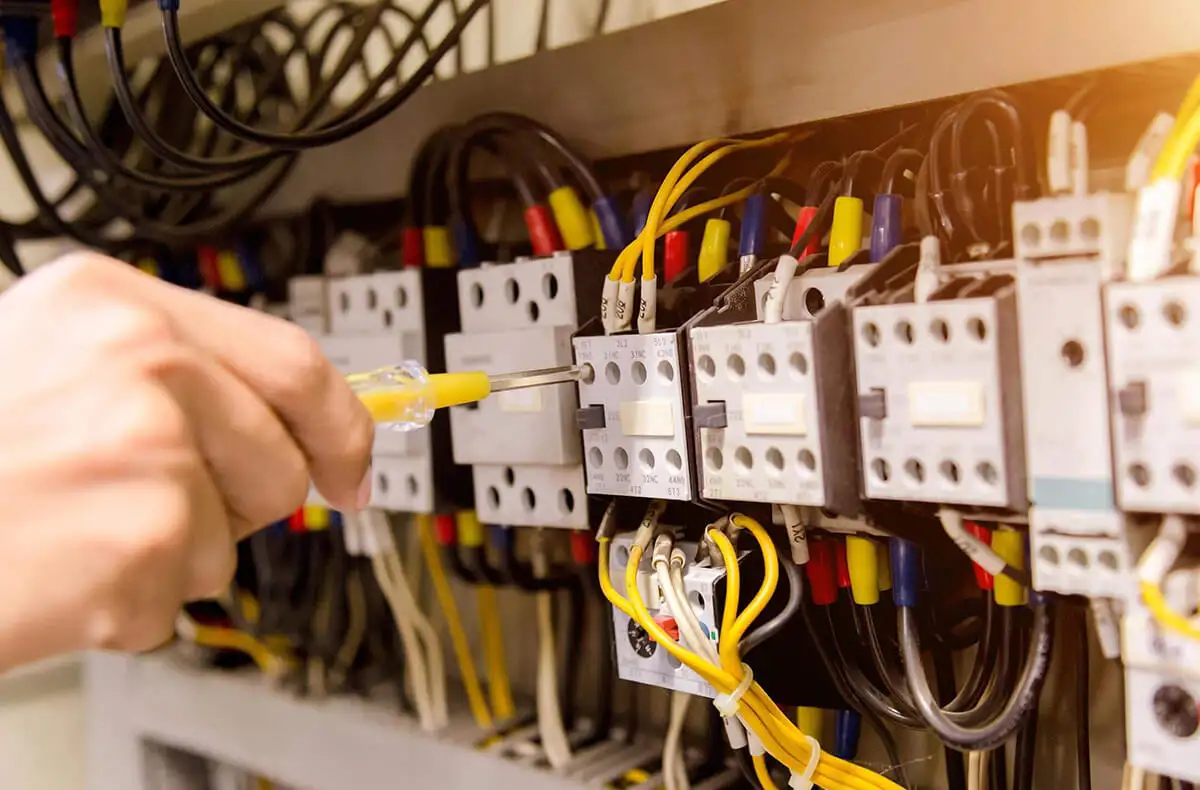When working with electrical systems, especially in industrial and commercial environments, choosing the right contactor is crucial. Two common types are vacuum contactors and AC contactors. While both serve the purpose of controlling electrical circuits by opening or closing contacts, they differ in design, function, and application. This article will help you understand the key differences between vacuum contactors and AC contactors, allowing you to make an informed decision for your specific needs.
1. What Are Contactors?
Before diving into the differences, it’s essential to understand what contactors are and why they are used.
1.1 Definition of a Contactor
A contactor is an electrically-controlled switch used for switching an electrical power circuit. Unlike circuit breakers, which are designed to interrupt a circuit during overload conditions, contactors are designed to be repeatedly opened and closed under normal operating conditions. They are used in various applications, including motor control, lighting, heating, and capacitor banks.
1.2 Importance of Contactors
Contactors play a critical role in automation systems, ensuring that electrical equipment operates efficiently and safely. They are commonly used in heavy-duty applications where frequent switching is required.
2. Vacuum Contactor: An Overview
Vacuum contactors are a specialized type of contactor that use a vacuum as the medium in which the contacts operate.
2.1 How Vacuum Contactors Work
In a vacuum contactor, the contacts are enclosed in a vacuum-sealed container. When the contactor is energized, the contacts close, allowing current to flow through the circuit. When it is de-energized, the contacts open, breaking the circuit. The vacuum prevents the formation of an arc, which can cause damage to the contacts and the surrounding equipment.
2.2 Advantages of Vacuum Contactors
- High Durability: The absence of oxygen and other gases in the vacuum prevents oxidation and erosion of the contacts, leading to a longer lifespan.
- Minimal Maintenance: Since there is no air or gas to ionize, the risk of arc formation is significantly reduced, requiring less maintenance.
- Silent Operation: Vacuum contactors operate quietly, making them suitable for environments where noise reduction is important.
- Compact Size: Vacuum contactors are generally smaller and lighter than other types of contactors, which can be beneficial in space-constrained installations.
2.3 Common Applications
Vacuum contactors are widely used in high-voltage applications, such as in the control of motors, transformers, and capacitors in medium-voltage networks (up to 36 kV). They are especially useful in industries where reliability and durability are critical, such as mining, metal processing, and utilities.
3. AC Contactor: An Overview
AC contactors are more traditional and are commonly used in low to medium-voltage applications.
3.1 How AC Contactors Work
AC contactors operate in a similar manner to vacuum contactors but without the vacuum-sealed environment. When energized, the electromagnetic coil generates a magnetic field that pulls the contacts together, allowing current to pass through. When de-energized, a spring mechanism forces the contacts apart, breaking the circuit.
3.2 Advantages of AC Contactors
- Cost-Effective: AC contactors are generally less expensive than vacuum contactors, making them a popular choice for lower-budget applications.
- Wide Availability: They are widely available and used in a variety of applications, making them easy to source and replace.
- Versatile: AC contactors can be used for both low and medium-voltage applications, and they are adaptable to various types of loads.
3.3 Common Applications
AC contactors are commonly used in motor control circuits, HVAC systems, lighting control, and other general-purpose applications. They are ideal for environments where the operating voltage does not exceed 1,000 volts.
4. Key Differences Between Vacuum Contactors and AC Contactors
Now that we have a basic understanding of both types of contactors, let’s look at the key differences between vacuum contactors and AC contactors.
4.1 Operating Medium
- Vacuum Contactor: Operates in a vacuum, eliminating the risk of arc formation.
- AC Contactor: Operates in the presence of air or gas, which can lead to arc formation during switching.
4.2 Durability and Maintenance
- Vacuum Contactor: Offers high durability and requires minimal maintenance due to the absence of arc formation.
- AC Contactor: May require more frequent maintenance due to contact wear and arc damage.
4.3 Cost
- Vacuum Contactor: Generally more expensive due to the complex design and materials used.
- AC Contactor: More cost-effective and widely available.
4.4 Application Range
- Vacuum Contactor: Best suited for high-voltage and high-reliability applications.
- AC Contactor: Suitable for low to medium-voltage applications and general-purpose use.
5. Which One Should You Choose?
The choice between a vacuum contactor and an AC contactor depends on the specific needs of your application. If you are dealing with high-voltage systems and require a durable, low-maintenance solution, a vacuum contactor is likely the better choice. However, if you need a versatile, cost-effective solution for lower voltage applications, an AC contactor may be more appropriate.
Conclusion
Both vacuum contactors and AC contactors have their unique advantages and are suited for different applications. Understanding the differences between the two can help you choose the right contactor for your specific needs, ensuring the safety and efficiency of your electrical systems.







